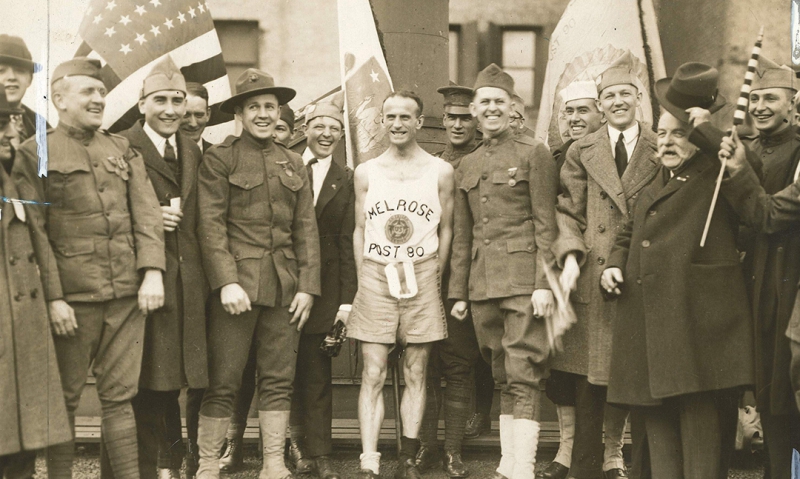
Clarence DeMar, the winningest runner in Boston Marathon history, was also a Massachusetts Legionnaire.
Earlier this week, Kenyan Geoffrey Kirui won the 2017 running of the Boston Marathon. But 87 years ago, a record that has yet to be broken was set: Clarence DeMar won his seventh Boston Marathon.
Running enthusiasts and historians likely know that fact, as well as that DeMar ran in three U.S. Olympics, earning a bronze medal in the men’s marathon in Paris in 1924.
Some may know that early on in his running career DeMar was diagnosed with a heart murmur and advised to give up running. But even fewer probably know that DeMar was a Legionnaire, a life member of Melrose Post 30 in Massachusetts. Or that he was a Sunday school teacher and dedicated to volunteering with the Boy Scouts of America.
Born in 1888, DeMar didn’t take up distance running until 1909 but managed to finish second in the Boston Marathon in 1910. A year later he won his first Boston Marathon.
After a 12th-place finish in the 1912 Olympics, he took the advice of doctors and took a break from running. He took extension courses from Harvard and Boston University while working as a printer.
He got back into running marathons in 1917 and finished third in Boston, but a short time later he was drafted into the U.S. Army. According to a 1927 American Legion Monthly article, DeMar served with the Army of Occupation and was shifted to an athletic detachment.
DeMar ran a few races while in the Army, but after his discharge from service in 1919 he went back to his job as a printer and didn’t take part in any races for two years. But when a sleet storm hit Boston in 1921 and DeMar was unable to ride his bicycle to work, which was his normal routine, he decided to run instead.
Running back and forth to work each day, DeMar realized he could still run long distances and began training for the Boston Marathon. Amazingly, he won the race in 1922 – the first of three straight victories in the nation’s oldest marathon. He followed with wins in 1927, 1928 and then his final one, at age 41, in 1930.
DeMar would still run until late in life, competing in 33 Boston Marathons – his final at age 65. He succumbed to cancer in 1958 at age 70. Forty-two years later he was inducted into the National Distance Running Hall of Fame. And in Keene, N.H., the Clarence DeMar marathon has been run since 1978 in his honor.
- Library & Museum

